National
Wrongful Death: What Happened to Sandra Bland?
by Jeffrey L. Boney
Special to the NNPA from the Houston Forward Times
It is still unknown whether 28-year-old Sandra Bland was murdered by Waller County law enforcement officials or whether she committed suicide, but whatever the cause of death there is one thing for certain – it was a wrongful death.
Concerned citizens and community activists from all across the Greater Houston area have been up-in-arms and gravely concerned after receiving the news that Bland, an African-American female, was found hanging in a jail cell by a plastic bag on Monday, July 13th.
Authorities immediately released reports saying Bland hanged herself in her Waller County jail cell – which is about 60 miles northwest of Houston – three days after having her head slammed to the ground and being arrested for allegedly getting into a physical altercation with an officer during a routine traffic stop – Bland supposedly failed to signal a lane change.
Bland had recently come back home to Texas to take a job at her alma mater, Prairie View A&M University, and was stopped on Friday, July 10, by a Waller County state trooper. Another driver recorded cell phone video of the incident is her telling the officers she is in pain and cannot hear after her head was slammed on the ground by the male arresting officer.
The Texas Department of Public Safety (DPS) has identified the law enforcement official who made the initial traffic stop of Bland as Brian Encinia. According to state records, Encinia, 30, has served at the department for one year and one month after earning his peace officer license in June 2014 and after receiving 1511 hours of training from the agency.
This past Monday, the Waller County Sheriff’s Office released a three-hour surveillance video taken from outside of Bland’s jail cell on the morning she was found dead in her cell.
Although the video released was three hours long, the video itself only covers 9 minutes and 26 seconds of actual footage because the camera is motion-activated.
At 7:17 a.m., the video shows an officer stop by Bland’s cell for several seconds and according to investigators, Bland told the officer that she was fine. Less than an hour later, another officer – a female officer – checked on Bland and you see the officer bend down, stand up and then start running for help.
According to Captain Brian Cantrell of the Waller County Sheriff’s Office, “the jailer looked through the window and observed Miss Bland hanging from her privacy partition in her cell.”
Cantrell stated that Bland was then placed on the floor for jailers to perform CPR and then five minutes later, paramedics went in but she was already dead.
According to the Harris County Medical Examiner, her death was ruled a suicide.
So far, authorities said they see no sign of foul play, but Bland’s family and supporters don’t believe she committed suicide and believe foul play may have been involved.
“The family of Sandra Bland is confident that she was killed and did not commit suicide,” the family’s law firm wrote in a statement. “The family has retained counsel to investigate Sandy’s death.”
Pastor Jamal Bryant, of the Empowerment Temple AME Church of Baltimore, has been in Hempstead at the Bland family’s request and believes Bland was murdered.
“This was not a case of suicide, but homicide,” said Bryant. “I stand in solidarity with the family, but we have to enlarge the narrative. This issue is bigger than Sandy. There is an attack on Black people in America and it must be acknowledged and dealt with immediately.”
Waller County District Attorney Elton Mathis said the Texas Rangers, along with the FBI, are analyzing the video to make sure it has not been altered and are investigating the death of Bland.
“It is very much too early to make any kind of determination that this was a suicide or a murder because the investigations are not complete,” said Mathis. “This investigation is still being treated just as it would be in a murder investigation. There are many questions being raised in Waller County, across the country and the world about this case. It needs a thorough review.”
Mathis has asked the Texas Rangers to do extensive scientific testing for fingerprints, touch DNA and use any other valid investigative techniques in an attempt to “figure out and say with certainty what happened in that cell.”
Bland’s sister, Shante Needham, said that Bland called her from jail the afternoon after her arrest, informing her that she had been arrested for unknown reasons and disclosed the details surrounding her accounts that an officer had placed his knee in her back and she thought her arm had been broken.
According to the Department of Public Safety, Bland “became argumentative and uncooperative” during the routine traffic stop; was arrested for assault on a public servant; and that paramedics were called to the scene to offer Bland a medical evaluation, but she refused.
Video footage captured by another driver who was passing by the incident was released, which shows Bland being forced on the ground and protesting her treatment and subsequent arrest.
The public had been awaiting the release of the dash cam footage from the police car of the officer who pulled Bland over, but according to Cannon Lambert, the attorney representing Bland’s family, you can see Bland arguing with the officer and the officer pulling out his Taser. The dash cam video was released on Tuesday.
Lambert said the dash cam video and the footage from the jail does not provide a full picture of what actually happened to Bland, during the traffic stop or what led to her death, but Lambert shared more details about the dash cam video that should lead to a more detailed investigation.
According to Lambert, the dash cam video shows the following:
- Officer approaches Bland’s vehicle and obtains her license and registration;
- Officer returns to his police car;
- Officer comes back and asks Bland to put out her cigarette, to which she refuses;
- Officer orders Bland to get out of her car and then opens her door;
- Bland protests and reaches for her cellphone to record the incident;
- Officer steps back and pulls out his Taser;
- Bland complies with officer by getting out of the car on her own;
- Officer tells Bland to put down her cellphone and tells Bland she is going to jail, to which she questions why
- Then the two move behind Bland’s vehicle to the passenger side of the car, and are out of view for the rest of the footage
- Out of view, Bland can be heard protesting her arrest
Video footage reportedly captured by a passer-by released last week appears to show Bland on the ground and protesting as she is being taken into custody.
State Senator Rodney Ellis sent a letter to the Texas Commission on Jail Standards – which monitors county jails across the state – asking for a thorough inspection of the jail.
“The family and the community deserve to know how this unfortunate loss of life occurred, whether there were any violations of procedures and protocols, and how this could have been prevented,” said Ellis.
U.S. Congresswoman Sheila Jackson Lee stated that she was contacting the U.S. Department of Justice to ask officials to look further into the death of Bland.
“Hopefully we will be pursuing this to get an understanding how this young lady lost her life,” said Jackson Lee.
Several community activists, ministers, students and concerned citizens have been holding protests, rallies and marches in the area and more are planned.
In the meantime, DPS has said the officer who stopped Bland violated traffic stop procedures and department policy and is on administrative leave pending the outcome of the investigation.
The family is awaiting the results of an independent autopsy and the results of the investigation surrounding the death of their loved one – Sandra Bland.
The Houston Forward Times will continue to follow this story and provide updates as they arise.
Black History
Martial Artist Victor Moore: An American Karate and Kickboxing Pioneer
Throughout his career, Moore defeated many national champions, including Joe Lewis, Mike Stone, and Bill “Superfoot” Wallace. Moore placed in every tournament he competed in from 1965 until his retirement in 1975, defeating renowned national champions such as Mike Foster, Chuck Norris, Fred Wren, Glenn Keeney, James Hawkes, and Jim Kelly. Moore emphasizes that winning or losing does not diminish a champion’s credibility — they are all champions in his eyes.

By Tamara Shiloh
Victor Moore, born on Aug. 23, 1943, holds a 10th-degree Black Belt in Karate and is a four-time world karate champion.
As one of the chief instructors under Robert Trias in the Shuri-ryu Karate system, Moore was also among the first ten members of the Trias International Society. Over his 50-year martial arts career, he trained in various styles, including Chito-ryu with William J. Dometrich, Judo, Kempo, and Bondo karate.
Moore began his martial arts journey at the age of 7 in Cincinnati, lifting weights and reading Charles Atlas books to guide his training. By age 9, he had learned the basics of jujitsu and judo, and at 12, he began training in Kempo karate under Ronald Williams, who awarded him his first black belt after five years of instruction.
In 1961, Moore expanded his training by joining a judo school led by Ray Hughes and later trained in Gyu Ryu-karate under Harvey Eubanks. He studied Kempo with Bill Dometrich and continued exploring different karate styles. Instructors at the time, required students to start as white belts in each new style, even if they held black belts elsewhere, which shaped Moore’s adaptability.
Chung Ling, an exchange student from China, introduced Moore and others to Chuan Fa, enhancing Moore’s understanding of martial arts. He also took up judo at a school in Cincinnati, where he earned his brown belt, and trained in karate with Jim Wax, who had studied under the Shimabuku brothers. Moore’s toughness was further honed by his boxing experience at the 9th Street YMCA, where he became a sparring partner for Tiger Joe Harris.
At Central State University, Professor Barry Yasuto trained Moore in Shotokan karate, but Moore was denied entry to the Japanese Karate Association, possibly due to his race. After returning to Cincinnati, Moore opened his first karate school and began competing in national tournaments. He traveled across the U.S., eventually meeting Robert Trias, who became his mentor and helped him rise to the second-degree black belt level. Under Trias, Moore continued training in Kempo and Goju-Ryu styles.
Moore also trained under Dr. Maung Gyi, learning Bondo karate, stick fighting, and kickboxing. In 1973, Moore and Joe Lewis introduced kickboxing to America on the Merv Griffin TV show. Moore competed in the first kickboxing tournament in the U.S., facing Jim Harrison in a historic fight.
Throughout his career, Moore defeated many national champions, including Joe Lewis, Mike Stone, and Bill “Superfoot” Wallace. Moore placed in every tournament he competed in from 1965 until his retirement in 1975, defeating renowned national champions such as Mike Foster, Chuck Norris, Fred Wren, Glenn Keeney, James Hawkes, and Jim Kelly. Moore emphasizes that winning or losing does not diminish a champion’s credibility — they are all champions in his eyes.
Moore continues to teach martial arts, working with instructors and students nationwide. His daughters, Vickie and Vonnie, and his son, Vanceston, also train under his guidance.
Activism
Atty Gen Bonta: U.S. Law Mandating Emergency Care to All Patients Faces Threats
The attorney general highlighted that EMTALA is vital for ensuring that no individual is turned away from emergency services based on financial status or insurance coverage. Bonta stated that the law has been a cornerstone of emergency healthcare for decades, providing peace of mind to millions of Americans who might otherwise hesitate to seek urgent medical attention due to cost concerns.

By Bo Tefu, California Black Media
California Attorney General Rob Bonta emphasized the critical need to protect the Emergency Medical Treatment and Labor Act (EMTALA), mandating that hospitals provide emergency care to all patients regardless of their ability to pay.
In a recent statement, Bonta highlighted the potential threats to this essential legislation amid ongoing discussions about healthcare accessibility in the U.S.
“EMTALA ensures that no one is denied access to emergency medical care, including abortion care, and this federal law is more imperative than ever following the overturn of Roe v. Wade,” said Bonta.
The attorney general highlighted that EMTALA is vital for ensuring that no individual is turned away from emergency services based on financial status or insurance coverage. Bonta stated that the law has been a cornerstone of emergency healthcare for decades, providing peace of mind to millions of Americans who might otherwise hesitate to seek urgent medical attention due to cost concerns.
This decision to support the federal government’s case comes at a time when many healthcare providers are facing pressure from rising costs and legislative changes that could undermine existing protections. Bonta called on lawmakers to reinforce EMTALA’s provisions and to combat any efforts aimed at weakening the act, asserting that equitable access to emergency care is a fundamental right.
He urged state and federal governments to ensure that all Americans, particularly marginalized communities, have the necessary access to emergency services without fear of financial repercussions. The brief indicates the coalition’s commitment to healthcare equity, emphasizing that maintaining strong protections under EMTALA is crucial for safeguarding public health.
As discussions around healthcare policy continue, Bonta remains steadfast in promoting initiatives that protect emergency care access, asserting that everyone deserves timely and appropriate medical treatment in emergencies. His efforts align with ongoing legal and advocacy battles to preserve the rights established by EMTALA in the face of evolving healthcare challenges.
#NNPA BlackPress
Why Not Voting Could Deprioritize Black Communities
NNPA NEWSWIRE — President Biden’s Justice40 initiative. This executive order ensures that 40% of federal investment benefits flow to disadvantaged communities, addressing deep-seated inequities.
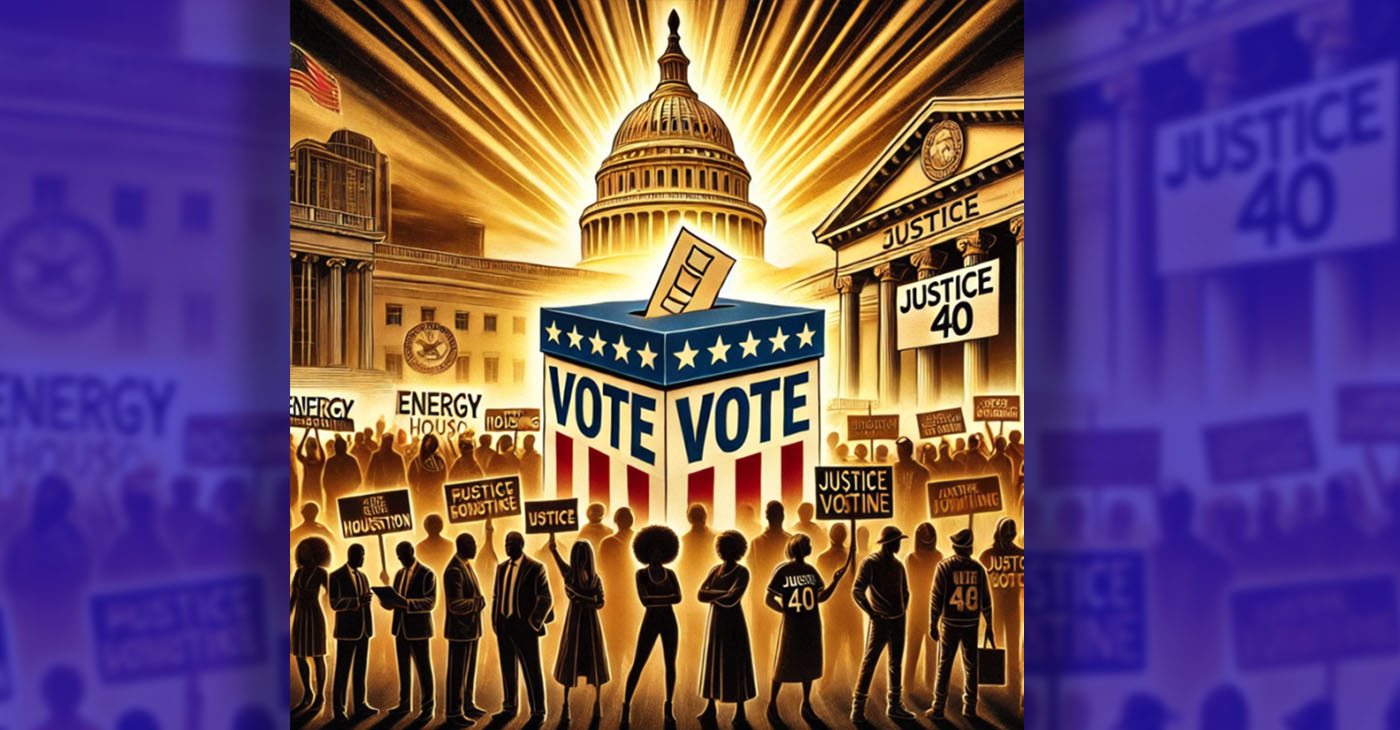
By Anthony Kinslow II, PhD
For generations, Black communities have been systematically denied the resources and opportunities provided to other American communities. Justice40 is more than a Biden-Harris initiative — it ensures a financial commitment to restore communities from historical inequities and bring lasting investment where needed most. It doesn’t matter if you don’t love Vice President Kamala Harris, are skeptical about her policies, or dislike her background as a prosecutor. If we want to see the progress and resources for Justice40 communities continue, we need to vote for her. The stakes in this upcoming election go beyond personal feelings and political preferences. A crucial piece of policy that directly impacts Black communities across the country is on the line:
President Biden’s Justice40 initiative. This executive order ensures that 40% of federal investment benefits flow to disadvantaged communities, addressing deep-seated inequities. Because the initiative was instituted via executive order if we don’t have President Kamala Harris in November, the executive order will likely be struck down. Justice40 touches every federal department—housing, education, transportation, energy, environmental protection, and much more. Using a broad range of metrics to define disadvantaged communities, the program is designed to avoid legal challenges while ensuring that many Black communities benefit from these federal investments.
Despite this historic initiative, much of the progress to implement this initiative could be undone by the results of this election. Justice40 is an executive order, and like all executive orders, it can be canceled with the stroke of a pen by the next president. If a Republican administration takes over, there’s every reason to believe this effort will be scrapped, especially with Trump’s explicit desire to reverse Biden’s policies. This is why we must cast our vote. This isn’t just about a candidate– it’s about securing a future where Black communities are finally prioritized.
In a Harris administration or a continued Biden-Harris presidency, we can expect the Justice40 program to grow and be further institutionalized. This progress has already started slowly but surely in departments such as the Department of Energy (DOE), the Department of Transportation (DOT), the Environmental Protection Agency (EPA), and the United States Department of Agriculture (USDA), with leaders working on systemic change. I know Many of our people in these positions working to make meaningful, lasting changes. This is in stark contrast to Trump’s presidency. While government work is always slow, the groundwork is being laid. For this progress to take root and continue benefiting our communities, voting to preserve it is essential. This is our vote to keep federal funds flowing to our neighborhoods.
SO, VOTE! Together, we can ensure that the Justice40 program continues to grow and uplift communities that have been left behind for far too long.
-

 Alameda County1 week ago
Alameda County1 week agoAlameda County District Attorney Pamela Price Announces $7.5 Million Settlement Agreement with Walmart
-
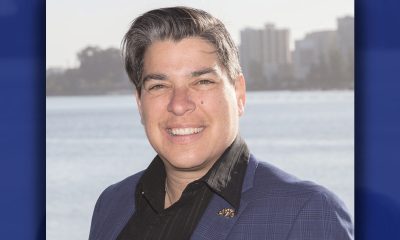
 Activism2 weeks ago
Activism2 weeks agoOP-ED: Hydrogen’s Promise a Path to Cleaner Air and Jobs for Oakland
-
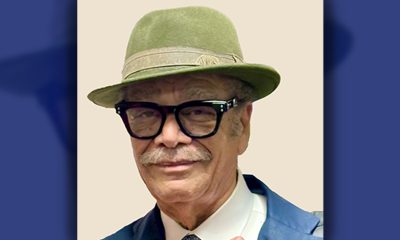
 Activism3 weeks ago
Activism3 weeks agoCOMMENTARY: DA Price Has Done Nothing Wrong; Oppose Her Recall
-
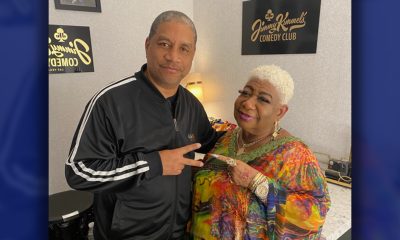
 Community2 weeks ago
Community2 weeks agoTerry T. Backs Oakland Comedy Residency by Oakland’s Luenell at Jimmy Kimmel’s Comedy Club in Las Vegas
-

 Activism3 weeks ago
Activism3 weeks agoBarbara Lee, Other Leaders, Urge Voters to Say ‘No’ to Recalls of D.A. Pamela Price, Mayor Sheng Thao
-

 Activism3 weeks ago
Activism3 weeks agoOakland Post: Week of October 9 – 15, 2024
-

 Bay Area3 weeks ago
Bay Area3 weeks ago2024 Local Elections: Q&A for Oakland Unified School Candidates, District 3
-

 Business2 weeks ago
Business2 weeks agoStudy Confirms California’s $20/Hour Fast Food Wage Raises Pay Without Job Losses



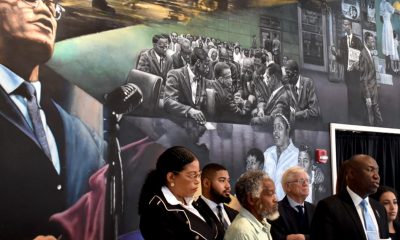

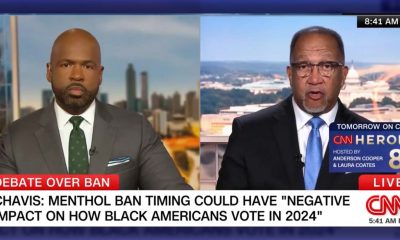



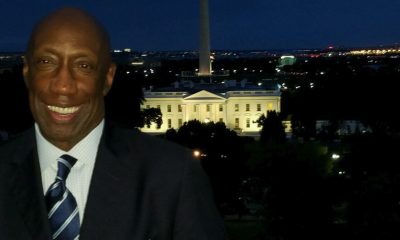

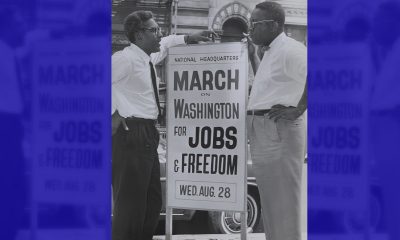

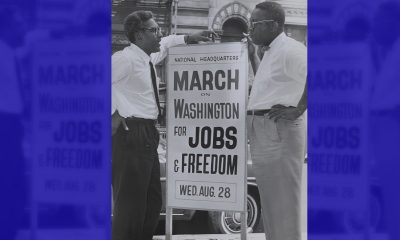



















































Pingback: usługi szklarskie piotrków